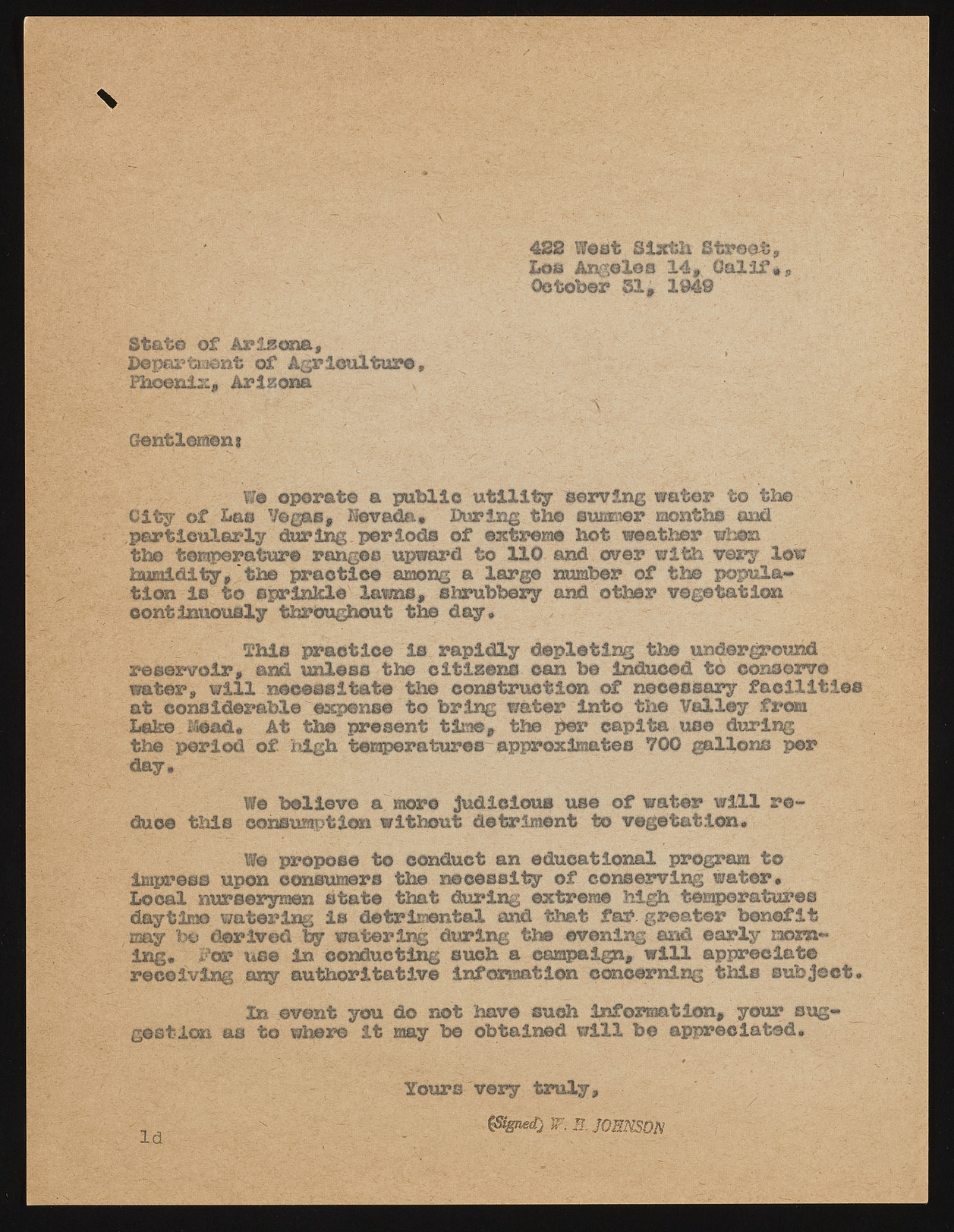Copyright & Fair-use Agreement
UNLV Special Collections provides copies of materials to facilitate private study, scholarship, or research. Material not in the public domain may be used according to fair use of copyrighted materials as defined by copyright law. Please cite us.
Please note that UNLV may not own the copyright to these materials and cannot provide permission to publish or distribute materials when UNLV is not the copyright holder. The user is solely responsible for determining the copyright status of materials and obtaining permission to use material from the copyright holder and for determining whether any permissions relating to any other rights are necessary for the intended use, and for obtaining all required permissions beyond that allowed by fair use.
Read more about our reproduction and use policy.
I agree.Information
Digital ID
Permalink
Details
More Info
Rights
Digital Provenance
Publisher
Transcription
\ v - j ^ ^ P gep P i ' ? - d 422 West Sixth Street, Los Angeles 14, Calif,, October 51, 1949 State o f Departme nAtr izona, of Agriculture, Phoenix, Arizona Gentlemen? We operate a public utility serving water to the City of Das Vegas, Nevada. During the stunner months and particularly durlngperiods of extreme hot weather when the temperature ranges upward to 110 and over with very low humidity, the practice among a large number of the population is to sprinkle lawns, shrubbery and other vegetation continuously throughout the day. This practice Is rapidly depleting the underground reservoir, and tinless the citizens can be induced to conserve water, will necessitate the construction of necessary facilities at considerable expense to bring water into the Valley from Lake Mead, At the present time, the p e r capita use during the period of high temperatures approximates 700 gallons per day. We believe a more judicious use of water will reduce t M s consumption without detriment to vegetation* W© propose to conduct an educational program to impress upon consumers the necessity of conserving water. Local nurserymen state that during extreme high temperatures daytime watering Is detrimental and that far greater benefit may bo derived by watering during the evening and early morning. .For use in conducting such a campaign, will appreciate receiving any authoritative information concerning this subject. In event you do not have such information, your suggestion as to where it may be obtained will be appreciated. Xours very truly, (Signed) W. R JOHNSON

